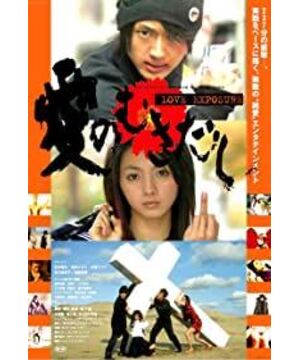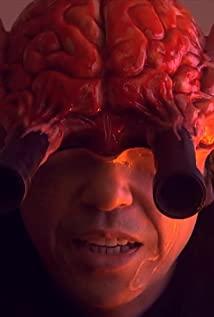Almost morbidly in love with this four-hour feature film. I saw the night from dusk until the night, and because the library network was poor, I went straight out and watched the last half hour while huddling in the cold wind of the spring night. It wasn't until at the end that Yuu and Yoko clasped their hands, and the film came to an abrupt end, and then swayed back to the dormitory drunkenly with the ending song of ゆらゆら Empire, as if they were seriously ill. Talented directors in the world can generally be divided into geniuses and ghosts, and Sonoko Wen is obviously a variant of the latter, he is a ghost. Boldly play with religion, belief, family, love, smashing hope with heavy taste, but sacrifice pure love in blood. Based on his own childhood experiences, religion has been placed in a satirical position by Sonoko Wen from the very beginning. The Christian godfather who preached forgiveness and atonement fell into the abyss of self-doubt because of the sin of sex, and even let his son Yu commit crimes. Sin attempts to gain inner comfort. But when he heard that You had committed a sex-related crime, he finally slapped him without hesitation, because it was his own crime, and he couldn't forgive himself, so how could he forgive others? Zhe has never been able to face the desire in his heart. Although this desire is not a sin in itself, it has become a sin because of the cocoon of ideas. This sin was inevitably transferred to the son Yu, the desire was brutally castrated, and the original sin developed into the original sin. But fortunately, Yu was always with Maria, the symbol of desire. So he met Chi Zi, the woman who was fascinated by his struggles and purity, and who wanted to smash him into the abyss with Mary. Ikezi is another satire of Sono Ziwen on religion. As the leader of the Zero Church who preaches absolute abstinence, he cannot hide his possessiveness towards Yu. She broke the symbol of her father's sexual desire, and thought that physical destruction could achieve spiritual castration, but when she finally optimized her body, Zuo Suli blew up the headquarters building and rescued Yoko, she realized that she could not change the person in front of her. So he committed suicide in despair, and the real blood from the original sin was shed on the ground. Original sin exists, but this sin is redeemable. When the excellent Mary was smashed, he thought he had lost the hope of redemption, but he did not know that the statue of Mary was also a bondage to him. Before that, what he loved was actually his mother, a sculpted Maria. And when Yoko rushed into the mental hospital desperately to wake him up, he really understood the words in the thirteenth chapter of 1 Corinthians, Mary is illusory after all, only Yoko is real, and the mirror Man is no longer a phantom, at this moment the spirit breaks the shackles of the statue and attaches to the entity, and the soul is redeemed. And Yoko's previous love was actually the illusory conceptual Zuo Suli, so she was easily deceived by Chizi and dragged into the abyss. It wasn't until Zuo Suli, the perfect body, who single-handedly rescued her, did she realize that what she loved was not the illusory Zuo Suli, but the real Yuu, and Chizi's death also shook her body and mind, and the scream of soul redemption was audible. Heartbroken. In the end, what the movie wants to tell is actually a story of redemption. The three teenagers who were castrated to have their desires castrated due to the tragedy of their original family, as well as the priest who restrained themselves and suppressed their desires, constantly seek inner liberation and a way to face their desires in the film. At the end of this road, the priest broke the cage, Yu and Yoko redeemed each other, but Ike died. And Sonoko Wen himself, just like Yuu who was filmed secretly in the movie, hides a heart as holy as Mary under the scenes that seem to be serious and vulgar, which is really deplorable.
View more about Love Exposure reviews











